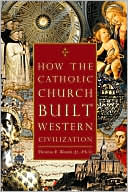Theodicy can be summed up like this: familiar cunundrum, that in view of all the evil in the world, if God is good, he is not omnipotent; and, if God is omnipotent, he is not good.
This is an excellent article from First Things about this issue and it quotes several passages from a book that I will be reading next, David Bentley Hart’s The Doors of the Sea: Where Was God in the Tsunami?
“Indeed we must say this: as God did not will the fall, and yet always wills all things toward himself, the entire history of sin and death is in an ultimate sense a pure contingency, one that is not as such desired by God, but that is nevertheless constrained by providence to serve his transcendent purpose. God does not will evil in the sinner. Neither does he will that the sinner should perish (2 Peter 3:9; Ezekiel 33:11). He does not place evil in the heart. He does not desire the convulsive reign of death in nature. But neither will he suffer defeat in these things.
“Every free act—even the act of hating God—arises from and is sustained by a more original love of God. It is impossible to desire anything without implicitly desiring the infinite source of all things; even the desire of the suicide for the peace of oblivion is born of a love of self—however tragically distorted it has become—that is itself born of a deeper love for the God from whom the self comes and to whom the self is called. . . .


2 comments:
I highly recommend reading The Doors of the Sea. If you're interested, I reviewed it here.
Thanks for the post wfo. I have read many of your comments over at the Touchstone blog and consequently been to your blog. Good stuff!
Post a Comment